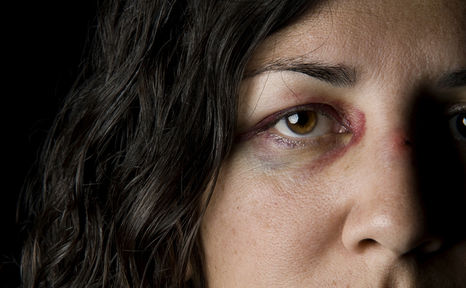

Domestic abuse puts prolonged stress on the body, which can lead to all sorts of chronic diseases including arthritis.

According to a global study, 30 percent of women are impacted by intimate partner, domestic or sexual abuse. It takes a lot for women to leave abusive relationships and to rise as survivors. Unfortunately, however, many of these women end up having health problems down the road, such as lower back pain, headaches, depression, diabetes, fibromyalgia, chronic pain, and other diseases. Many women and their doctors do not necessarily connect abuse with illness, but the research speaks for itself.
A 2013 study conducted by the Verizon Foundation, the MORE Magazine Society and the Society for Women's Health Research found that women who had experienced domestic abuse experienced higher rates of chronic illness and pain than those who had not. According to the survey, 44 percent of the women had reported experiencing some form of domestic violence. In total, 70 percent of women over age 21 had a chronic illness condition, and, of the women who reported being victims of domestic violence, 81 percent were chronically ill.
Another similar study from the Centers for Disease Control and Prevention (CDC) found that men and women who had experienced intimate partner physical abuse, sexual abuse and/or stalking in their lifetime are more likely to experience frequent migraines, chronic pain, sleep issues, and overall poor mental and physical health. The CDC survey also reports that women who have experienced sexual or physical violence are more likely to suffer from diabetes, irritable bowel syndrome and asthma than women who had not been victims.
Many women do not see the lasting effects of abuse until years down the road. They may experience long-term stress, which may come from these damaging relationships. When cortisol (the body's fight or flight hormone) is produced for long periods, the body loses its ability to regulate the inflammatory response, according to research conducted by Sheldon Cohen of the Carnegie Mellon University in Pittsburgh, Pennsylvania. This phenomenon might explain why women ages 20 to 50 under stress from abusive relationships suffer from diseases that usually affect older women, such as arthritis.
The Verizon study found that only 6% of women and their doctors have connected their chronic illness and/or pain to the domestic violence they experienced many years prior. In fact, 75 percent of the participants shared that they have never been asked about domestic violence by their doctors or doctor's staff. And as many as two-thirds of the women would have wanted their doctors and nurses to ask.
Obstacles that may prevent medical professionals from asking about domestic abuse include not wanting to invade the patient’s privacy, not wanting to offend patients, little understanding about domestic abuse and lack of referrals and/or procedures for screening patients. Moreover, many medical professionals still operate under the idea that domestic violence is physical and leaves some kind of physical mark on the victim. But, relationship abuse takes on many forms — from emotional harassment to financial abuse to stalking to controlling behavior.
The U.S. Preventative Task Force recommends that women between the ages of 14 and 46 be screened for domestic violence when they are in a healthcare facility. However, the decision to ask patients whether they are victims of abuse comes down to the healthcare provider.
Only two states in the U.S. require continuing medical education in domestic abuse. This lack of training of the patient’s healthcare team hinders victims from getting the help they desperately need. Our medical professionals are not properly trained to access patients who are currently experiencing abuse or who have experienced abuse in the past.
Too many women — and men — currently suffer from domestic violence health complications, and many may not even know it. Addressing the full ramifications of domestic abuse may lower the incidence of patients' developing chronic illnesses and ultimately save time, money and lives.
You and Your Relationships: A Positive Perspective on Negative People
Recognizing and Dealing with Toxic People in Your Life
Looking for a Partner? How About Falling in Love with Yourself First?
Copyright © www.orthopaedics.win Bone Health All Rights Reserved